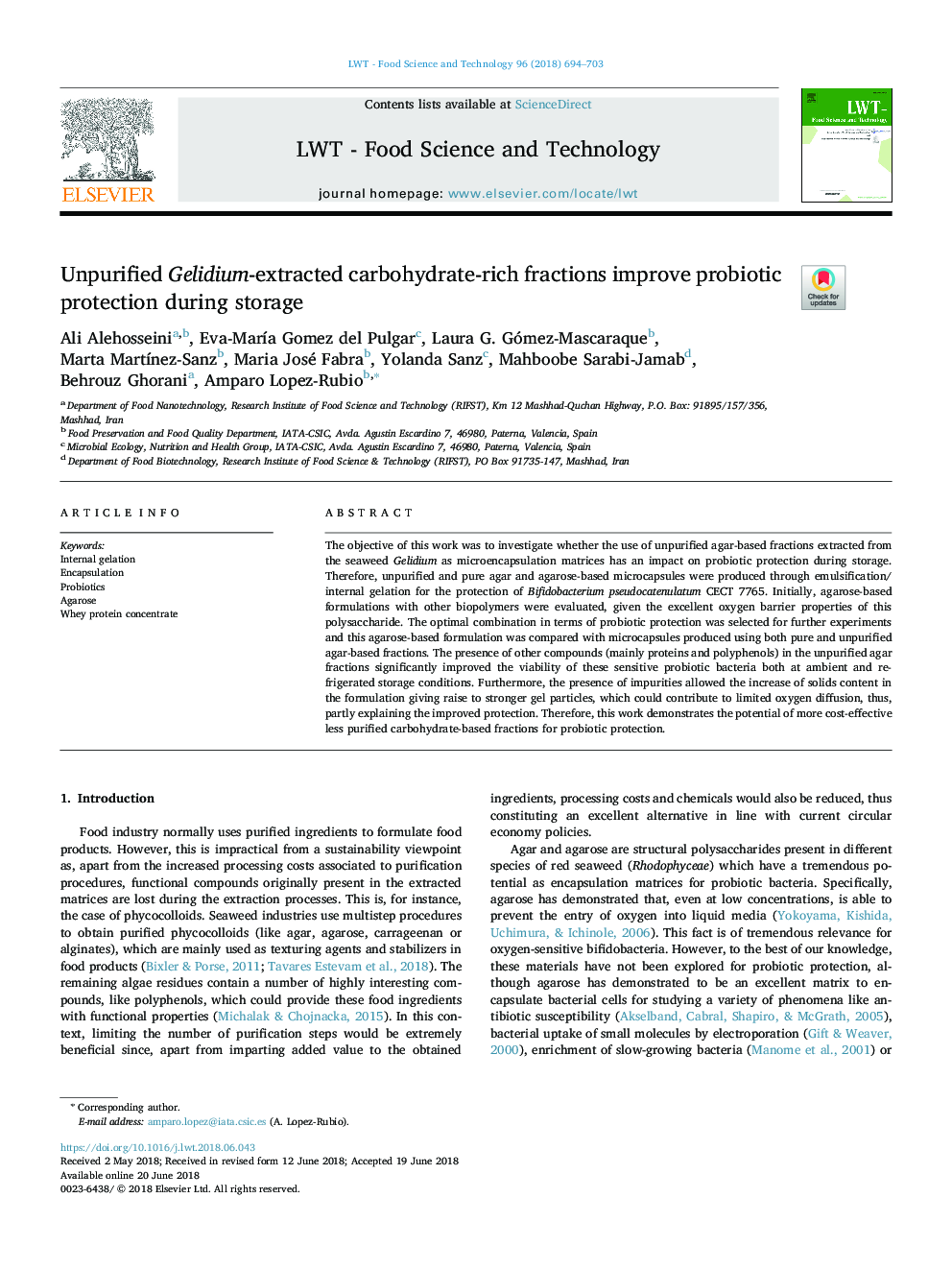| Article ID | Journal | Published Year | Pages | File Type |
|---|---|---|---|---|
| 8890766 | LWT - Food Science and Technology | 2018 | 10 Pages |
Abstract
The objective of this work was to investigate whether the use of unpurified agar-based fractions extracted from the seaweed Gelidium as microencapsulation matrices has an impact on probiotic protection during storage. Therefore, unpurified and pure agar and agarose-based microcapsules were produced through emulsification/internal gelation for the protection of Bifidobacterium pseudocatenulatum CECT 7765. Initially, agarose-based formulations with other biopolymers were evaluated, given the excellent oxygen barrier properties of this polysaccharide. The optimal combination in terms of probiotic protection was selected for further experiments and this agarose-based formulation was compared with microcapsules produced using both pure and unpurified agar-based fractions. The presence of other compounds (mainly proteins and polyphenols) in the unpurified agar fractions significantly improved the viability of these sensitive probiotic bacteria both at ambient and refrigerated storage conditions. Furthermore, the presence of impurities allowed the increase of solids content in the formulation giving raise to stronger gel particles, which could contribute to limited oxygen diffusion, thus, partly explaining the improved protection. Therefore, this work demonstrates the potential of more cost-effective less purified carbohydrate-based fractions for probiotic protection.
Related Topics
Life Sciences
Agricultural and Biological Sciences
Food Science
Authors
Ali Alehosseini, Eva-MarÃa Gomez del Pulgar, Laura G. Gómez-Mascaraque, Marta MartÃnez-Sanz, Maria José Fabra, Yolanda Sanz, Mahboobe Sarabi-Jamab, Behrouz Ghorani, Amparo Lopez-Rubio,
